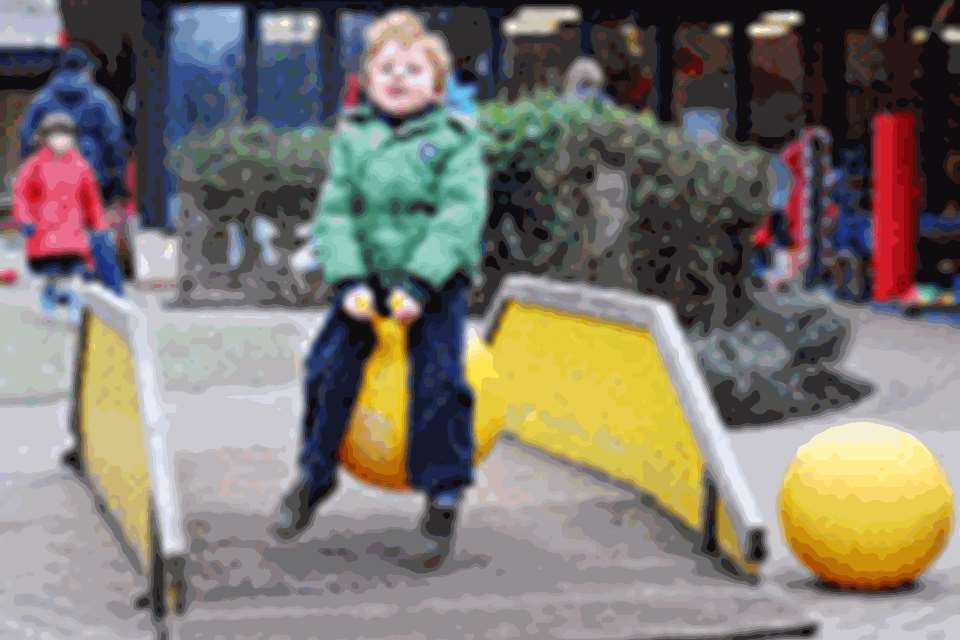New rating scale focuses on adult:child interactions
Thursday, March 12, 2015
A valuable new scale has been devised to assess the quality of adult support in promoting children’s ‘sustained shared thinking’ and ‘emotional well-being’.

Called the Sustained Shared Thinking and Emotional Well-being (SSTEW) scale, it will build on the ITERS and ECERS, which consider adult-child interactions alongside the planning and organisation of learning spaces, to provide a deeper focus on the adult role.
Its authors are Prof Iram Siraj, University College London (UCL), Prof Edward Melhuish, of the Universities of Oxford and Birbeck, University of London, and Denise Kingston, a senior lecturer at the University of Brighton and research officer at UCL. The new scale was unveiled at this week's 4Children Early Childhood Matters conference.
SSTEW has evolved out of earlier scales and research such as the EPPSE (Effective Primary, Pre-School and Secondary Education) longitudinal study and has a similar format to its predecessors — in this instance, with five sub-scales and 14 items (see below).
Spanning aspects of PSED, C&L and L&D, the sub-scales may at first appear discrete. But as Prof Kathy Sylva, University of Oxford, notes in her foreword to the scale, it has ‘a coherent underlying theory’, concluding: ‘The discrete items in this scale are all based on communication, and it is this that provides coherence and the rationale for the inclines of quality practice’.
SSTEW is already being used in several studies in Australia and New Zealand, as well as the Study of Early Education and Development (SEED) longitudinal study, commissioned by the DfE to build on findings from EPPSE.
Early years consultant Nancy Stewart, who has been using the SSTEW scale to assess settings involved in the SEED study, said, ‘Building on the quality of what children experience in settings is the key to ensuring the best support for their learning and development. Settings work hard to develop their provision and practice, but sometimes it's difficult to define exactly what to focus on that will really make a difference. The SSTEW scales can offer a clear guide to moving to the next level.
‘Previous quality rating scales focus on aspects of the environment and routines, but include only a fairly quick look at the quality of relationships and interactions. The SSTEW scales go much further in defining what the adults actually do that support both children's emotional well-being and their learning behaviours and attitudes - the characteristics of effective learning.
‘Adults play a huge role in helping children to be emotionally and intellectually ready to think and learn, and the SSTEW scales spell out the skills and approaches that settings can focus on developing in their practice.’
See Nursery World, 23 March for Prof Siraj and Denise Kingston’s article detailing SSTEW, its development and how it can be used in early years settings
CONTENT OF THE STEW SCALE
The scale comprises five sub-scales that link to particular aspects of developments and have 14 subheadings, called items. These are:
1 Building trust, confidence and independence
Item 1 Self-regulation and social development
Item 2 Encouraging choices and independent play
Item 3 Planning for small group and individual interactions/adult deployment
2 Social and emotional well-being
Item 4 Supporting socio-emotional well-being
3 Supporting and extending language and communication
Item 5 Encouraging children to talk with others
Item 6 Staff actively listen to children and encourage children to listen
Item 7 Staff support children’s language use
Item 8 Sensitive responsiveness
4 Supporting learning and critical thinking
Item 9 Supporting curiosity and problem-solving
Item 10 Encouraging sustained shared thinking through storytelling, sharing books, signing and rhymes
Item 11 Encouraging sustained shared thinking in investigation and exploration
Item 12 Supporting concept development and higher-order thinking
5 Assessing language and learning
Item 13 Using assessment to support and extend learning and critical thinking
Item 14 Assessing language development








